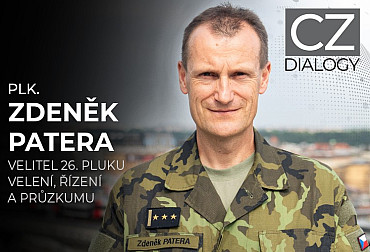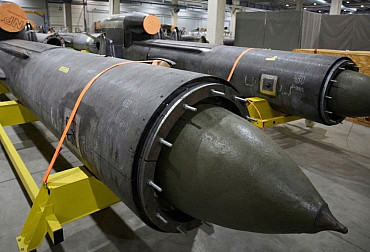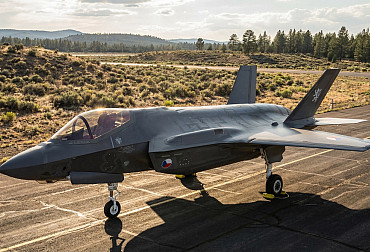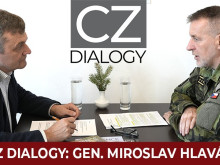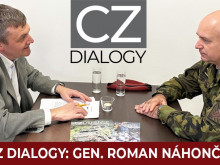Gen. Aleš Knížek: There is a huge interest in the expositions of the Army Museum in Žižkov
After its reopening, the Army Museum in Prague's Žižkov district has become a destination not only for visitors interested in the military history of our countries, but has also become a centre of education and part of school teaching. The Military History Institute (VHÚ) recently won the category of Museum Achievement of the Year in the national Gloria musaealis competition for the reconstruction of the Army Museum Žižkov. This fulfils the wish of the Director of the VHÚ, Brig. Gen. Aleš Knížek's wish that the museum will become an inspiration for the entire Czech museum industry, which will pass on information about our history to the youngest generation. This is not only what we talked about in the next episode of our discussion programme CZ DIALOGY.
Video: Interview with the Director of the Military Historical Institute Brigadier General Ales Knížek / CZ DEFENCE
According to Gen. Knížek, the first seven months of operation of the newly reconstructed museum have clearly shown that there is a huge interest in the Army Museum Žižkov and the military history of the Czech Republic. This can be seen in the number of visitors, which reached the impressive figure of 100,000. And these are visitors not only from the Czech Republic, but also from abroad. It is the foreign visitors who make themselves known in reviews on the Google platform. "There are over a thousand of them now, I think. And a lot of those reviews are from abroad, whether it's Great Britain, Germany, even people from Asian countries, America or Ukraine write there," says the director of Knížek. The high proportion of visitors from school children, both primary and secondary schools, is very important. "We have a very experienced group of museum educators here. These are people who have already offered the possibility of working with schools before the museum opened. And almost from day one, schools have been applying to our museum programs," says General Knizek, who adds: "Schools choose to visit certain parts of the museum based on what they are currently discussing in their curriculum. They are partnered with museum education colleagues, and either together with them or with teachers, the teaching takes place directly in the museum's exhibitions," which was the goal, according to the director of the VHÚ – to be right there, in the exhibitions. "If the teachers want, we give them worksheets, which the children then play with in different parts of the museum. The important thing is that the schools keep coming back. I was hoping it would work out that way. I think we are also one of the few museums in the Czech Republic that can connect the actual teaching with the museum exhibitions in this way. Comenius would be delighted," laughs Director Knížek. According to the feedback so far, the greatest interest is in the World War I exhibition, specifically the section with the trenches. Perhaps surprisingly for some, there is also great interest in post-war history, up to the present day, which, incidentally, is of most interest to visitors from the ranks of members of the Czech Army who have been, for example, in foreign operations.
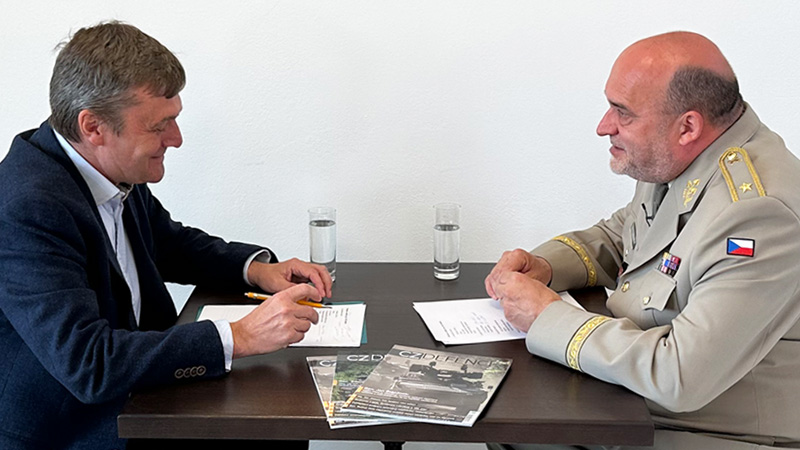 Picture: In this episode of our discussion show CZ DIALOGY, we talked with the Director of the Military Historical Institute, Brigadier General Ales Knížek | Michal Pivoňka / CZ DEFENCE
Picture: In this episode of our discussion show CZ DIALOGY, we talked with the Director of the Military Historical Institute, Brigadier General Ales Knížek | Michal Pivoňka / CZ DEFENCE
The last time we spoke with General Knížek, which was before the grand opening of the Army Museum Žižkov, the director of the VHÚ told us that some of the exhibits could be touched, which is not a common thing in museum practice. "I think that both children and adults can play in the museum. In all the time the museum has been open since October last year, all the 'touchable' exhibits have been in place. It hasn't happened that anything has been lost. Only a part of the sausage from the plate in the exhibition dedicated to normalisation got loose," smiles Aleš Knížek. According to him, all these exhibits are very widely used in school programmes. "A very popular game for children is putting on medieval helmets, but not only for children," says Gen. Knížek. Seven months since the opening of the reconstructed Army Museum in Prague's Žižkov district is a sufficient period for the authors of the exhibits to start measuring the success of the units on display. "The exposition is one of the best you can see in terms of military history in Europe at the moment. It focuses on the soldier from the territory of the Czech Crown. Of course, it is also supplemented by foreign conflicts, foreign events. Maybe we could display more exhibits of foreign armies. However, we really wanted to focus on the Czech soldier. The things we have in our depositories related to foreign armies will be shown at occasional exhibitions," explains Aleš Knížek.
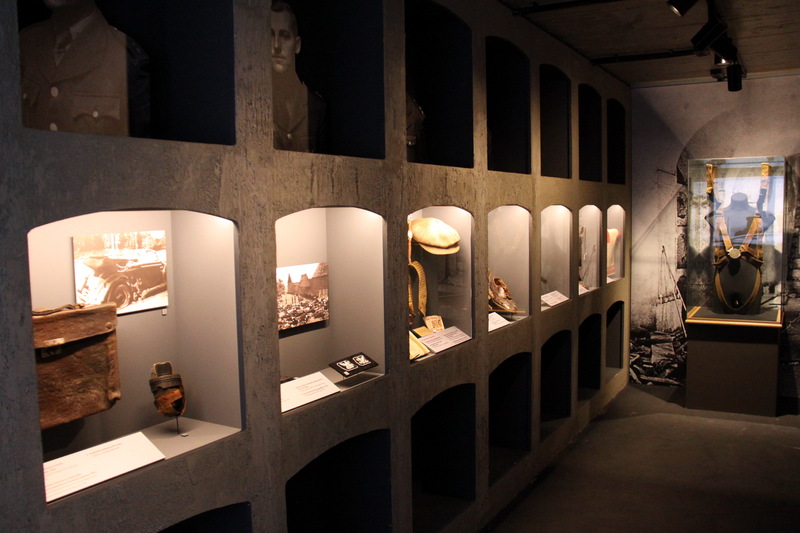 Picture: The first seven months of operation of the newly reconstructed museum have clearly shown that there is a huge interest in the Army Museum Žižkov and the military history of the Czech Republic. | VHÚ
Picture: The first seven months of operation of the newly reconstructed museum have clearly shown that there is a huge interest in the Army Museum Žižkov and the military history of the Czech Republic. | VHÚ
The Military History Institute also pays attention to cooperation with similar institutions abroad. "Last year, a large world congress of military museums was held here, when forty representatives of military museums from all over the world were here, who had a unique opportunity to see the installation of the new exhibition. For them it was an experience. There were representatives of museums with which we have been cooperating for years, such as the Military Museum in Dresden or the Imperial War Museum in Great Britain," General Knížek added. Cooperation with foreign museums is important for many reasons, for example, in identifying collection items or in exhibitions or loans.
Research and publication is also an important part of the VHÚ. "We are introducing new formats for seminars and conferences. This is what we couldn't do before because we didn't have the right facilities. The first workshop has already taken place with great interest. My colleagues presented research on the search for First World War losses. The workshop is divided into five parts and will run until September or even October," says the director of the VHÚ. According to Gen. Book this is a very important matter because many people are interested in their ancestors. They want to know where they fought, died or how their battles were fought during the First World War. "We are trying to provide even more information than we have on our website. There will also be a big international conference on military basic service. It's going to be a two-day event and I think it's a topic that we also need to go back to and remember the roots of that service and get down to the abolition of military basic service. There will be a lot of historians from all over the world who will be here to debate this topic and then a proceedings will come out of that. Now we are finishing the individual proceedings of the conferences we had on the First World War and in parallel with that we are creating new publications," says Brigadier General Ales Knížek, Director of the Military History Institute.
If you are interested in our full interview with Brigadier General Ales Knížek, watch the video at the beginning of this article.











